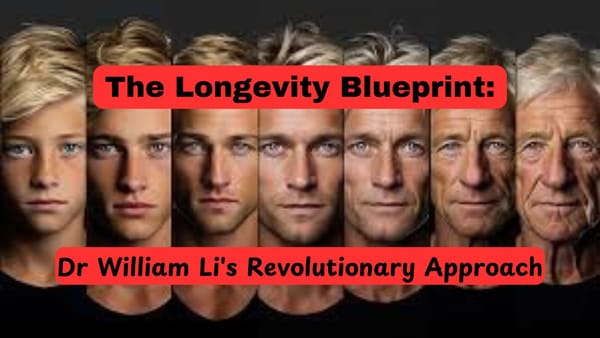Power of Positive Thinking: How It Affects Your Wellbeing

The power of positive thinking is an age-old concept that has stood the test of time. More than just telling yourself you can achieve your goals, positive thinking encompasses developing an optimistic mindset, focusing on the good in any situation, and taking constructive actions towards growth and self-improvement. When harnessed effectively, the power of positive thinking can have profound effects on your overall health and well-being.
The Science Behind Positive Thinking
Numerous scientific studies have demonstrated the measurable effects that positive thinking can have on the brain and body. When we think positively, our brains release neurotransmitters like serotonin, dopamine, and endorphins. These "feel-good" chemicals boost mood, lower stress, and promote a sense of well-being.
Research has shown that positive thinking can:
- Strengthen the immune system and lower the risk of health problems. A 2005 study found that optimism and positive emotions correlated with higher immune system function and lower cardiovascular risk.
- Reduce anxiety and depression. Focusing on positive emotions can minimize anxiety, sadness, and negative thinking patterns common in mental health disorders.
- Increase lifespan. The health benefits of positivity may translate to longevity. A 2019 review linked positive thinking to increased lifespan in healthy populations.
As psychotherapist Karen Reivich says, “Resilience begins with positive emotion." When we make a habit of positive thinking, it starts a beneficial cascade in the brain and body that reinforces physical and mental health.
Promoting Optimism and Gratitude
Two cornerstones of positive thinking are nurturing optimism and practicing gratitude. Both involve reframing situations to focus on the positive.
Optimism involves developing a viewpoint that expects the best possible outcome. Even when faced with setbacks, optimists remain hopeful and solution-focused. This contrasts with pessimism, which expects negative outcomes and fixates on problems.
Research shows optimists enjoy better wellbeing. A 2010 study found higher optimism correlated with reduced inflammation and healthier cholesterol levels. Other studies link optimism to better stress management.
Cultivating optimism takes practice. Strategies include:
- Reframing negative thoughts into positive ones
- Avoiding catastrophic thinking and keeping perspective
- Visualizing success
- Recalling past successes
- Seeing failures as temporary setbacks
Gratitude involves appreciating the positive things, large and small, in one’s life. Regularly reflecting on gratitude boosts positive emotions, life satisfaction, and sense of purpose.
A 2021 study showed writing gratitude journals lowered stress and depression while improving sleep and concentration. Other research found gratitude journaling before bed led to higher quality sleep.
Ways to build gratitude include:
- Keeping a gratitude journal
- Writing thank you notes
Expressing thanks to others
- Praying or meditating on gratitude
- Reflecting on positive moments before bed
Gratitude allows us to focus less on perceived lacks and more on the gifts we possess. This promotes contentment and wellbeing.
The Benefits of Positivity for Work and Relationships
Bringing positive thinking into the workplace and one's relationships can also have measurable benefits.
At work, positivity creates a thriving environment. Research shows positive employees have:
- Higher productivity and performance
- Increased work satisfaction
- Greater resilience to stress
- Stronger organisational commitment
Managers can promote positivity by recognizing employee successes, cultivating team optimism, allowing humor and social connections, and leading by example.
In relationships, positivity strengthens bonds. Partners who make positive expressions, acknowledge each other's strengths, laugh together, and forgive easily enjoy higher relationship satisfaction.
Positivity also enriches parent-child relationships. Positive parenting focused on praise, affection, and quality time produces higher self-esteem and resilience in children.
Even in difficult times, focusing on the hopeful and the good kindles the warmth that sustains human connection.
Positivity Enables Growth and Self-Improvement
The power of positive thinking also enables personal growth. With eyes focused on possibility, positive thinkers are more readily able to envision their best selves and take constructive action.
Positive affirmations are simple statements we repeat to ourselves to reinforce confidence and identity. Phrases like "I am strong" or "I am worthy of love" plant seeds of self-belief that blossom into real change. Studies show those who recite positive affirmations experience boosts in self-esteem and performance.
Mental contrasting blends positive thinking and practicality. It combines clearly envisioning a desired future with acknowledging present reality. This spurs people to take achievable actions towards their goals. Research finds mental contrasting a useful strategy for improving outcomes, from academics to health behaviors.
Optimistic self-talk provides an encouraging internal voice when working through challenges. Rather than berating ourselves over failures, we can motivate growth with thoughts like "I can learn from this" or "Progress takes patience." This builds resilience and persistence.
The power of positive thinking helps us become our best selves, even in the face of adversity. When we expect the best from ourselves and others, we allow those seeds to blossom.
The Downside of Excessive Positivity
While positive thinking generally provides benefits, taken to extremes it can be detrimental. Examples include:
- Toxic positivity - Dismissing or suppressing negative emotions. This causes more harm than good.
- Unrealistic optimism - Having excessively rosy expectations that inevitably lead to disappointment when life's trials arise.
- Blaming - Faulting others for "not being positive enough" rather than acknowledging real hardships or differences of opinion.
- Passivity - Just thinking good thoughts without taking purposeful action.
The ideal approach is balanced positivity - being realistically hopeful and enthusiastic while also mindful that all emotions have value. With moderation, the power of positive thinking uplifts us.
Conclusion
The power of positive thinking has profound science-backed benefits for health, work, relationships and personal growth. By focusing on possibility, cultivating optimism and gratitude, and taking constructive action, we create a self-reinforcing upward spiral that lifts our wellbeing. While excessive positivity has downsides, when practiced moderately positive thinking engenders resiliency to life's inevitable ups and downs. Our brains are wired to elevate what we dwell on - so let us dwell on the good.





